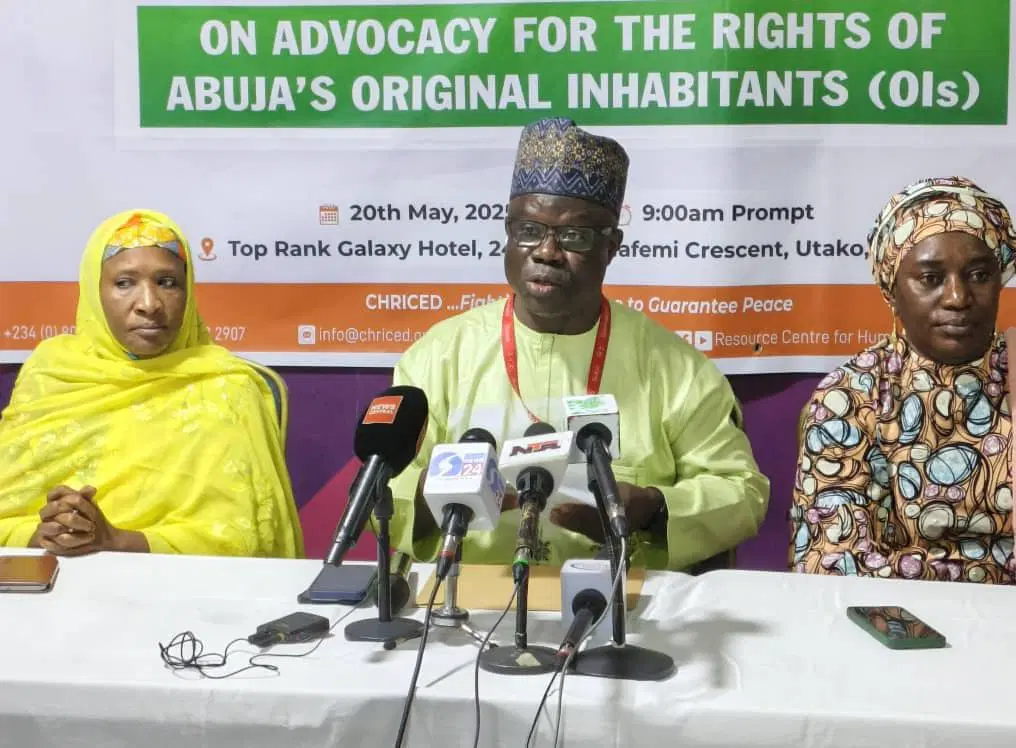From Okwe Obi, Abuja
The failure of foreign miners to comply with Nigeria’s mining laws, particularly the requirement for Community Development Agreements (CDAs) to provide corporate social responsibilities, has sparked protests in the Federal Capital Territory (FCT).
The Centre for Human Rights and Civic Education (CHRICED) has demanded that miners adhere to CDAs to benefit FCT residents.
CHRICED’s Executive Director, Ibrahim Zikirullahi, speaking to reporters in Abuja, criticised the lack of governance structures in the FCT, recognised as Nigeria’s 37th state. “Original inhabitants cannot elect a governor or legislature, as the territory is governed by a minister appointed from another state,” he said, noting this political exclusion denies residents a voice in decisions affecting their lives.
Zikirullahi highlighted the environmental and social impacts of mining, stating, “Mining operations have exacerbated suffering. Blasting, land destruction, and pollution have caused health crises and desecrated cultural sites.” He added that the judicial system has failed to resolve cases of demolitions and land seizures, leaving communities without fair compensation. Women and children face acute challenges, including limited access to clean water and healthcare.
He announced a ₦330 million initiative, supported by the John D. and Catherine T. MacArthur Foundation, to empower Abuja’s Original Inhabitants (OIs). The two-year project will provide training, mentorship, and funding to nine OI-led organisations to document human rights violations and advocate for change. It aims to amplify the voices of women, youth, and persons with disabilities and foster unity among the FCT’s 17 indigenous chiefdoms.
A key component is the establishment of the Abuja Heritage Centre to preserve the cultural identity, history, and artefacts of these communities. “The centre will serve as a hub for scholarly research and offer postgraduate scholarships, particularly for OI women and girls, to study indigenous knowledge and rights,” Zikirullahi explained.
He called for urgent reforms to address constitutional gaps rendering OIs “stateless and landless”, urging the FCT Administration to halt demolitions and land seizures. Zikirullahi appealed to the National Assembly, the federal government, development partners, and the media to prioritise justice for OIs and support grassroots movements. “Let OI communities resist political deceit and stay united in their pursuit of dignity and self-determination,” he concluded.

